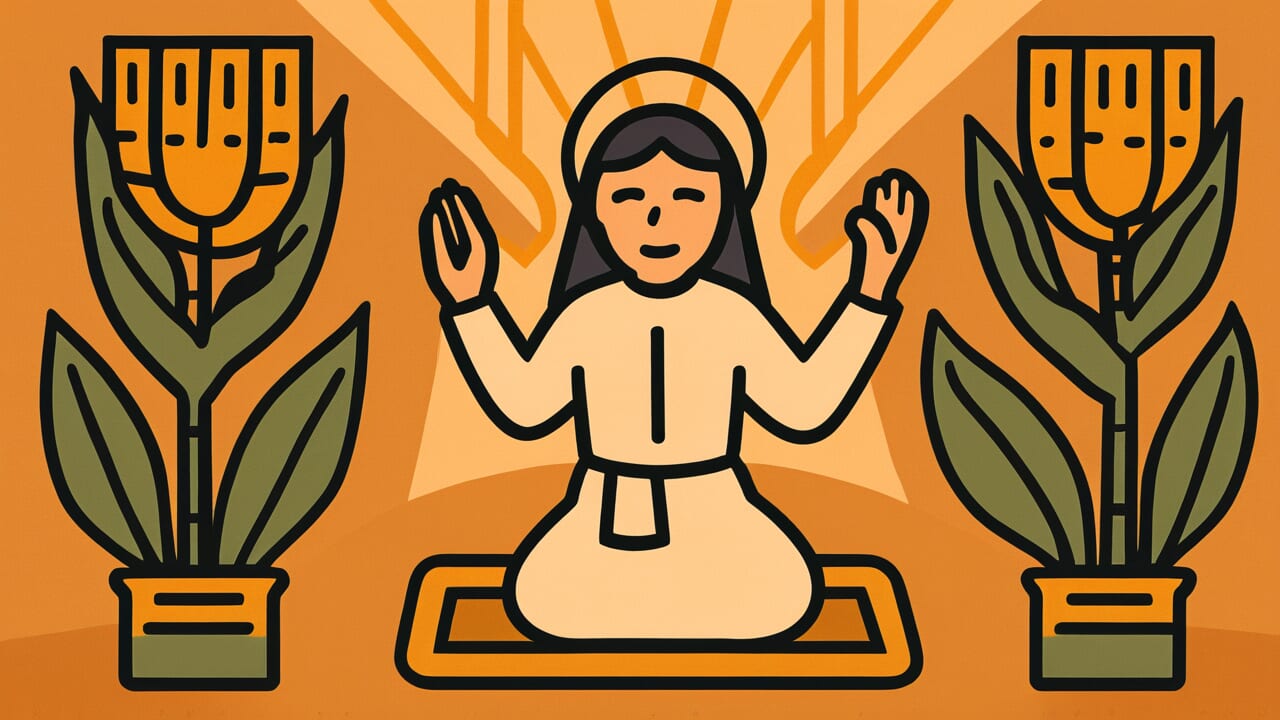How to Read “Holding a memorial service with someone else’s burdock root”
Hito no gobō de hōji suru
Meaning of “Holding a memorial service with someone else’s burdock root”
“Holding a memorial service with someone else’s burdock root” means using other people’s things to take care of your own business.
It describes avoiding costs or effort you should bear yourself by using someone else’s resources instead. You handle things in a way that’s convenient for you.
This proverb criticizes such behavior. It reflects the view that relying on others for things you should prepare yourself is ethically wrong.
People use this saying when pointing out someone taking advantage of another person’s effort or property.
Even today, this expression applies to many situations. Someone might present another person’s work as their own. They might misuse company expenses for personal matters.
Or they might take too much advantage of a friend’s kindness. The proverb still offers a valid warning against avoiding personal responsibility and depending on others.
Origin and Etymology
No clear written records explain the origin of this proverb. However, its components reveal an interesting background.
Burdock root has been eaten in Japan since ancient times. It was especially important in Buddhist vegetarian cooking.
A memorial service is a Buddhist ritual. Family members and relatives gather to honor the deceased. After a monk chants sutras, everyone shares a meal together.
Hosting a memorial service required serving food to all attendees. This preparation demanded considerable expense and effort.
Burdock root wasn’t particularly expensive. But it was essential when preparing food for memorial services.
This proverb likely describes using someone else’s burdock to prepare a memorial service you should have provided yourself.
The choice of a solemn occasion like a memorial service adds critical weight to the saying. It warns against using other people’s things to fulfill responsibilities you should bear yourself.
People passed this wisdom down through generations. It became established as a phrase that captures dishonest behavior common in daily life.
Usage Examples
- He’s always holding a memorial service with someone else’s burdock root, never preparing anything himself
- Taking credit for your subordinate’s plan is like holding a memorial service with someone else’s burdock root
Universal Wisdom
“Holding a memorial service with someone else’s burdock root” has been passed down for generations. It contains deep insight into fundamental human weakness.
Everyone wants to take the easy path when possible. If you can make someone else shoulder your burden, you save time and effort.
This temptation exists across all times and cultures. Yet human society stands on mutual trust and fairness.
When someone gains unfairly, someone else always suffers unfair loss.
This proverb reveals the tension between short-term gain and long-term trust. Using someone else’s things for your own business might seem profitable in the moment.
But such actions always get noticed. They lead to lost trust.
Our ancestors understood the importance of fairness and honesty in relationships. This proverb concisely conveys a truth: exploiting others for temporary benefit ultimately damages your reputation and relationships.
To earn respect as a person, you must take responsibility for your own duties. This timeless life wisdom remains unchanged.
When AI Hears This
People who hold memorial services with someone else’s burdock root are actually making sophisticated calculations. Hosting a social event like a memorial service boosts reputation, but at zero cost.
This strategy’s success rate is inversely proportional to the community’s monitoring ability.
In game theory, when such free riders exceed a certain number, the entire society collapses. For example, in a community of ten people, if three become free riders, the remaining seven face 1.4 times the burden.
Then those who were bearing their share honestly start thinking, “Maybe I should ride free too.” The cooperation system collapses in a chain reaction. This is called the “critical point of cooperation.”
What’s interesting is that human society developed countermeasures in three layers. The first layer is direct monitoring. The second is a reputation system.
The third layer is a culture that remembers and retells “whose burdock it was.” This proverb itself functions as a third-layer defense mechanism.
Posting someone else’s idea on social media as your own follows the same structure. But digital space leaves traces, so detection risk is higher than before.
Technology advancement continues to lower the expected value of free-rider strategies. A strategy that might have had a 70 percent success rate centuries ago might be below 30 percent today.
Lessons for Today
This proverb teaches us the importance of independence and responsibility. In our convenient, affluent modern society, depending on various services and systems has become normal.
But that’s exactly why we easily lose sight of where our responsibilities lie.
At work and in private life, we need to pause sometimes and consider whether we’re relying too much on others’ efforts and goodwill.
Are you depending too heavily on a colleague’s work? Are you taking family kindness for granted? Are you treating a friend’s time lightly?
These small realizations become the first step toward building healthy relationships.
What matters is the balance of give and take. Helping each other is beautiful, but relationships don’t last when you only receive.
Do what you can yourself, and help others when you have capacity. This cycle creates communities filled with trust.
Be grateful for the resources and opportunities around you, while maintaining the strength to stand on your own feet. That’s the unchanging message this proverb offers to those of us living today.



Comments